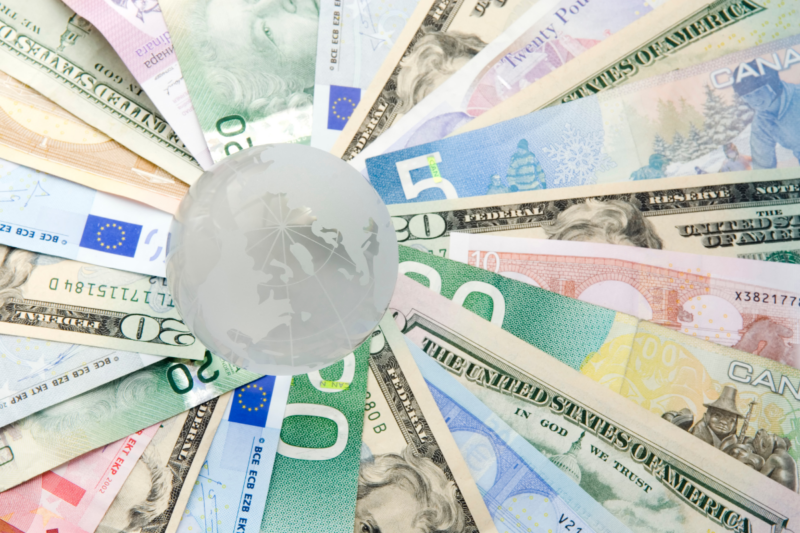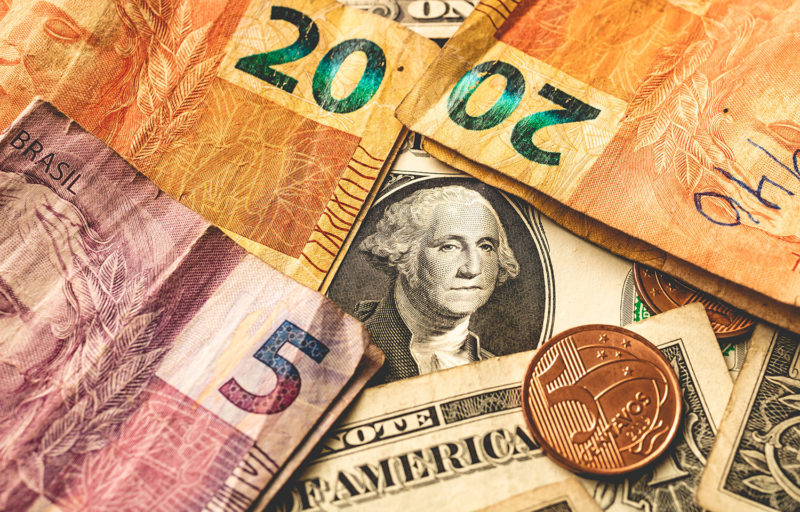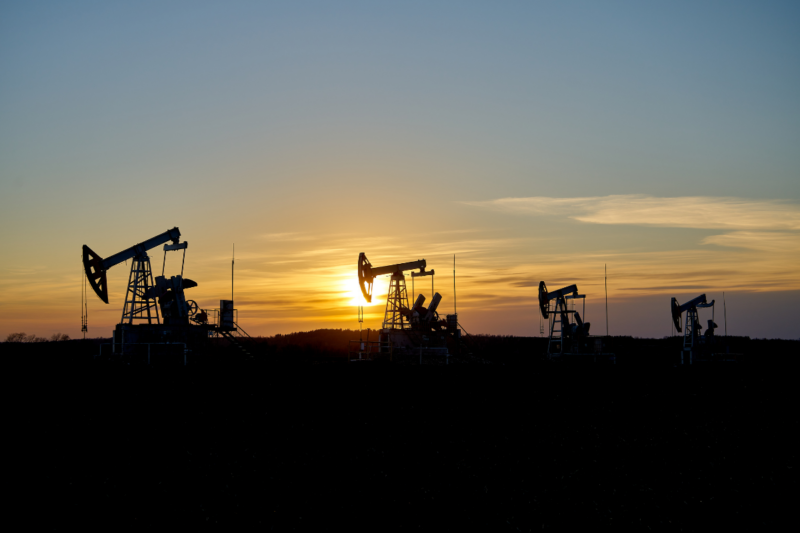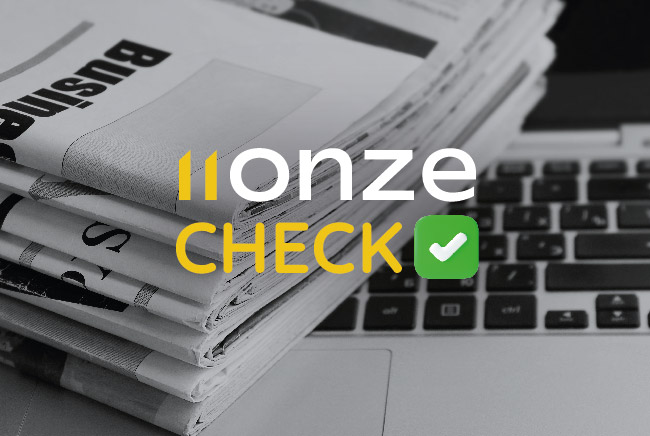IMF: the financial arsonist
The International Monetary Fund was founded to promote international monetary cooperation, facilitate global trade and contribute to financial stability. Over time, however, its mandate was expanded to provide “support” to economies experiencing financial difficulties, and it has evolved into a tool at the service of neoliberal interests.
On 15-20 April, the annual spring meetings of the International Monetary Fund (IMF) and the World Bank are being held in Washington. The official purpose of these meetings is to bring together efforts to end extreme poverty and promote shared prosperity.
This international body was established in 1944 to promote monetary cooperation, facilitating international trade and contributing to financial stability. Since its founding, it has sought to eliminate restrictions that hinder the expansion of world trade and exchange rate stability and avoid competitive currency devaluations between countries.
With the end of fixed exchange rate systems after the gold standard was abolished during the 1970s, its role changed. The advent of neoliberalism in the US and Western European economic policies meant a new role for the IMF, which began to finance nations with trouble paying their debts and balancing their payments.
A lifeline that brings civil unrest and social misery
IMF financial assistance is not free, as is well known, loans are accompanied by strong austerity which disproportionately affects the poorest sectors of the population and often ends up benefiting the elites.
The IMF’s usual mechanism for this is the imposition of conditionalities, such as loan forgiveness for countries needing balance of payments support, or, as in the case of Pakistan, weapons transfers into Ukraine. In other words, the IMF is often used as yet another foreign policy tool of Western corporatocracies.
The conditions imposed on debtor countries open their economies to the introduction of foreign capital, corporations, and investors. This is done by privatising public services and selling off the crown jewels of the countries receiving this “aid”, especially their natural resources and land.
As a general rule, the IMF demands that governments reduce public spending, raise taxes and implement reforms to reduce their debt-to-GDP ratio. Cutting social subsidies on fuel and food or reducing public investment in hospitals, schools, and roads becomes the “new normal”.
These draconian austerity measures provoke demonstrations and revolts among the affected populations, known as “IMF riots”. A term coined to describe the waves of protests that took place in developing countries during the 1980s and 1990s, and which perfectly defines the consequences of the actions of a financial firefighter who starts fires.
The economic crises in Mexico and Greece and subsequent IMF bailouts highlighted the negative role the IMF has played in recent years, nonetheless, the widely documented record of its interventions over the last 50 years has been more than dismal. Although humanitarian organisations such as Oxfam and CAFOD never stop denouncing that the IMF’s “austerity campaigns” severely harm poor countries and that it has played a “devastating” role in the global debt crisis, the international lending agency shows little sign of changing its course.
If you want to discover the best option to protect your savings, enter Preciosos 11Onze. We will help you buy at the best price the safe-haven asset par excellence: physical gold.
The Western political class and its mainstream media have repeatedly claimed sanctions would bring Russia down to its knees, and yet, the economic siege has been mostly ineffective and counterproductive. While the Russian economy and its war machine are thriving, the main European economies have collapsed. What has gone wrong?
Since the beginning of the armed conflict in Ukraine in 2014, the United States and its vassal states have imposed unprecedented sanctions and trade restrictions on Russia. These measures were intended to sink the Russian economy, dismantle its war machine and limit its ability to finance the war.
Today’s sanctions against Russia go far beyond the traditional sanctions that the United States has used since the end of World War II to “punish” any country that threatens its hegemony on the global geopolitical chessboard, historically targeting the banking system and elites. Yet, they have become the most glaring example of a failure to achieve the desired results through the imposition of economic sanctions.
This Western economic siege was designed to attack the Russian economy on all fronts. On the one hand, to castrate its financing capacity by requisitioning half of its foreign currency and gold reserves, nearly 400 billion euros, and to make it impossible for it to pay its foreign debt in dollars, even if it is willing and able to do so, in order to force a default.
Moreover, the US control over SWIFT (Society for Worldwide Interbank Financial Telecommunication), as well as the International Monetary Fund (IMF) and the World Bank (WB), coupled with the hegemony of the petrodollar, allowed them to isolate Russia from the Western-led global economic system, as they had previously done against Iran when the US unilaterally withdrew the nuclear deal after breaching it from day one.
On the other hand, they wanted to curb its hydrocarbon exports and thus limit its ability to finance the war. However, while Western European economies collapsed and even went into recession, the Russian economy grew by 3.6 per cent in 2023 and is expected to grow by another 2.6 per cent in 2024, according to IMF data.
Similarly, despite Western media propaganda constantly repeating that Russia was running out of ammunition and other military supplies, the combined military-industrial capacity of the entire Western bloc and some of its client states, such as South Korea, Japan and Israel, remains far below that of Russia. They cannot even maintain the production needed to fuel the US proxy war in Ukraine, let alone produce enough ammunition for a direct confrontation against Russia.
The so-called international community
Western propaganda rhetoric also has us believe that the international community supports sanctions against Russia. It should be noted that this so-called “international community” only includes the United States, Canada, the United Kingdom, the European Union, and perhaps Australia, Japan and the occasional Micronesian island. It therefore does not include the large part of the international community who is either against the sanctions or prefers to remain neutral.
This has been reflected in the failure of the ‘real’ international community, including China and India, to follow through on Western sanctions, which has been key to maintaining Russian oil exports. Even towards the European Union and the United States, with the full knowledge of the two Western actors, thus consolidating the hypocrisy of “do as I say, not as I do”.
The same EU has continued purchasing record volumes of liquefied natural gas (LNG) from Russia. This, while the US enriched itself by tripling its EU LNG exports and selling it at a much higher price than Russia, while becoming the world’s largest LNG exporter. All thanks to the economic sanctions and sabotage of the North Stream pipelines.
A new trade and monetary paradigm
Other than those related to the energy sector, the most obvious reasons for the failure of trade sanctions on Russia revolve around implementation issues. Complex supply chains, gaps in exports of dual-use goods and the reluctance of companies to completely discontinue their business with the Russian market have established alternative trade corridors through bordering and related countries in Russia.
In the monetary sphere, the temporary convertibility of the rouble to gold at a fixed price did not mean a return to the “gold standard“, but it became key to recovering and stabilising the rouble’s value after the fall experienced by sanctions. A revaluation of the rouble against the dollar even allowed the Central Bank of Russia to lower interest rates to avoid excessive appreciation of the state currency.
After most Western governments banned imports of Russian gold, China started buying Russian gold in record numbers. In July 2022 alone, it had already imported gold worth 109 million euros, an increase of 750% compared to the previous month and 4,800% compared to the same period in 2021.
Over the past decade, Russia and China have also initiated de-dollarisation programmes, signed de-dollarisation agreements, implemented alternative interbank communication protocol systems to SWIFT and created digital currencies linked to their central banks (CBDCs).
The West has lost all credibility
Leaving aside the hypocrisy of the economic sanctions and the background of the coup d’état orchestrated by Victoria Nuland in Kyiv in 2014 that triggered the current armed conflict in Ukraine, the West lost all credibility as a moral authority decades ago, if it ever had any.
Without wishing to make a compilation of all the wars imposed by the United States and its “allies” over the last decades and justified on a pack of lies, we cannot ignore the current illegal military occupation of countries such as Syria and Iraq by the United States, likewise by Israel in Syria, Lebanon and Palestine. It is quite obvious that international law and the sovereignty of nations are only relevant and respected when it suits the West.
If anyone still had any doubts, the political and military support for the ongoing genocide in Gaza has surely vaporised the last ounce of integrity left in the Western moral compass. The complicity of the collective West in bankrolling this massacre is nothing short of a criminal endeavour worthy of a Nuremberg tribunal. Clare Daly, MEP for Ireland, being one of the few white doves in a European Parliament full of war hawks when calling out Ursula von der Leyen as “Frau Genocide”.
Given the West’s blatant hypocrisy on human rights and international law, it is hardly surprising that some of its corporations are simply pretending to comply with the sanctions, while behind closed doors they are doing everything they can to circumvent them. Nor would it be logical to expect the international community to follow the orders of the geopolitical equivalent of a school bully that is increasingly losing its strength when confronted by a multipolar world.
If you want to discover the best option to protect your savings, enter Preciosos 11Onze. We will help you buy at the best price the safe-haven asset par excellence: physical gold.
For many years, the Western economic model has been characterised by a system of crony capitalism based on the promiscuous relationship between politics and business. An endemic evil that affects, to a greater or lesser extent, the vast majority of countries.
Xavi Viñolas, 11Onze editor
Crony capitalism is a term used to describe a capitalist system in which business success depends on mutual favours between businessmen and politicians. These relationships often lead to government policies that benefit a few companies or individuals to the detriment of the interests of the public, which end up instrumentalised by the powers that be.
The use of political connections to secure preferential treatment or unfair advantage can take the form of public contracts, subsidies, or regulations and laws that favour a select group of companies or individuals. Commissions, bribes, and revolving doors from politicians to big business are part of the lexicon that accompanies this practice of nepotism and corruption, which, unfortunately, no longer surprises anyone.
In this context, economic activity does not follow the principles of a free market economy designed to serve the consumer with the best products, but to maintain the favour of political power through businesses or lobbies that corrupt public officials, generating inefficiencies, fostering oligopolies, slowing economic growth and eroding trust in the political class.
The 2008 global financial crisis is an excellent example of how collusion between financial institutions and governments can lead to risky and irresponsible practices by monopolies that control the market, causing economic devastation that taxpayers end up paying for by rescuing banks from bankruptcy with public money.
Political disaffection
One of the most serious consequences of widespread government corruption and abuse of power is that citizens become disengaged from the political process. The apathy and cynicism of a population, which sees public officials using their positions for their own benefit, manifests itself in low voter turnout and the destruction of the moral fibre of society.
If the lack of transparency and oversight weakens trust in government institutions and makes politicians unaccountable for their actions, it is difficult to convince citizens that social and economic improvements are achieved by putting into practice ethical values such as effort, hard work and honesty.
The lack of credibility associated with governments is compounded by a two-party political system, de jure or de facto, established throughout the Western world, which in many cases does not even favour two parties or political coalitions antagonistic to each other. On the contrary, it is often a matter of two political actors sharing power in a cyclical fashion, but with little difference in the implementation of policies that benefit the establishment that acts outside the institutions.
No information, no accountability
A free press is the cornerstone of democratic societies. It serves as a check on government power and promotes transparency and accountability. Without a free press, citizens would not have access to the information they need to make informed decisions and hold their leaders accountable.
Unfortunately, much of the media has become a mouthpiece for economic and political elites. Far from reporting on government actions or corporate malpractices, the journalistic narrative often contributes to their propaganda while whitewashing corruption, ensuring the impunity of elected officials.
This reveals an unwillingness to serve the public interest, preventing citizens from being aware of government actions that may involve conflicts of interest. This is a bleak picture that is unlikely to change unless civil society organises to empower citizens through information and education, enabling them to make decisions that guarantee their fundamental rights.
11Onze is the community fintech of Catalonia. Open an account by downloading the super app El Canut for Android or iOS and join the revolution!










